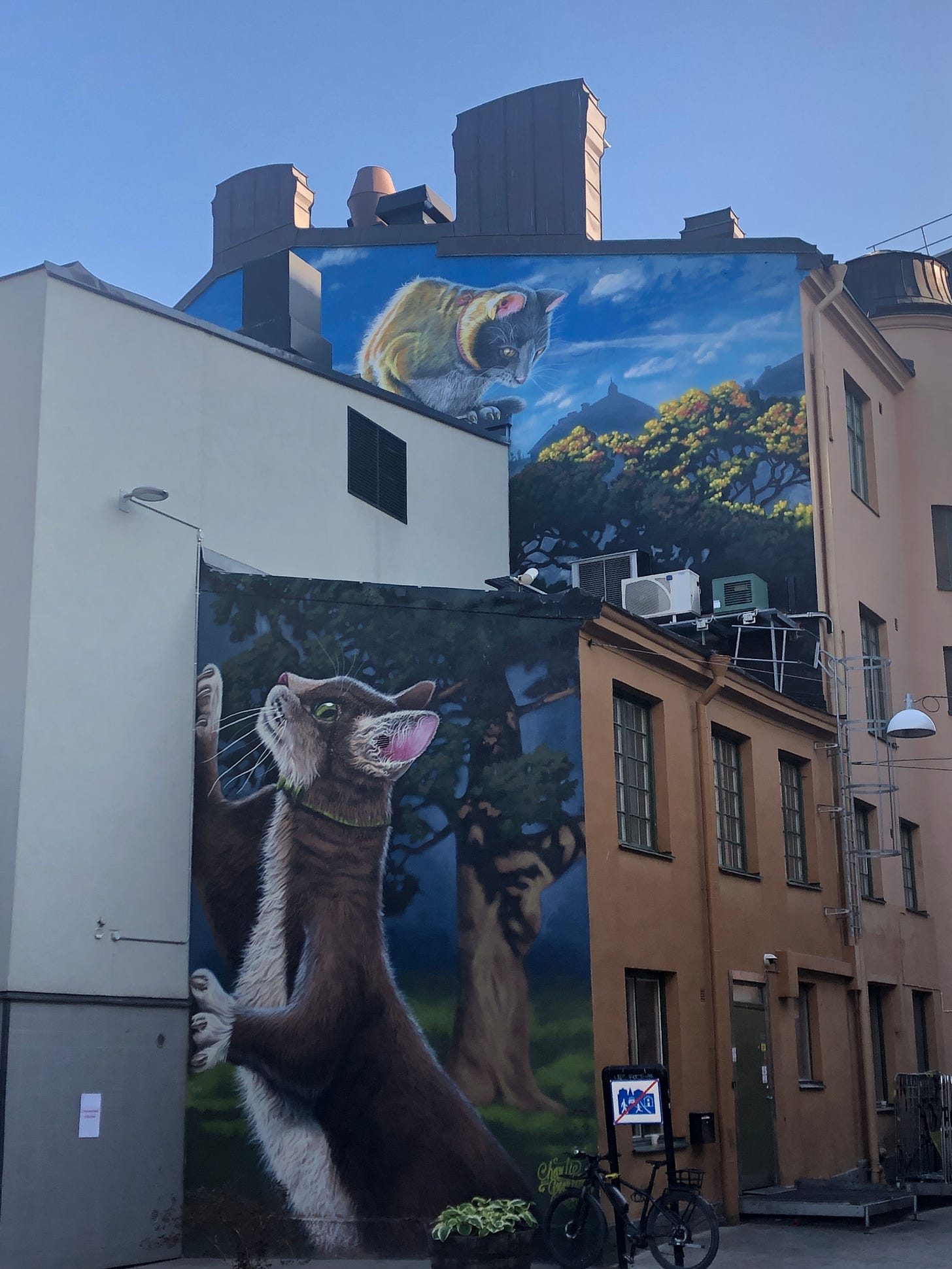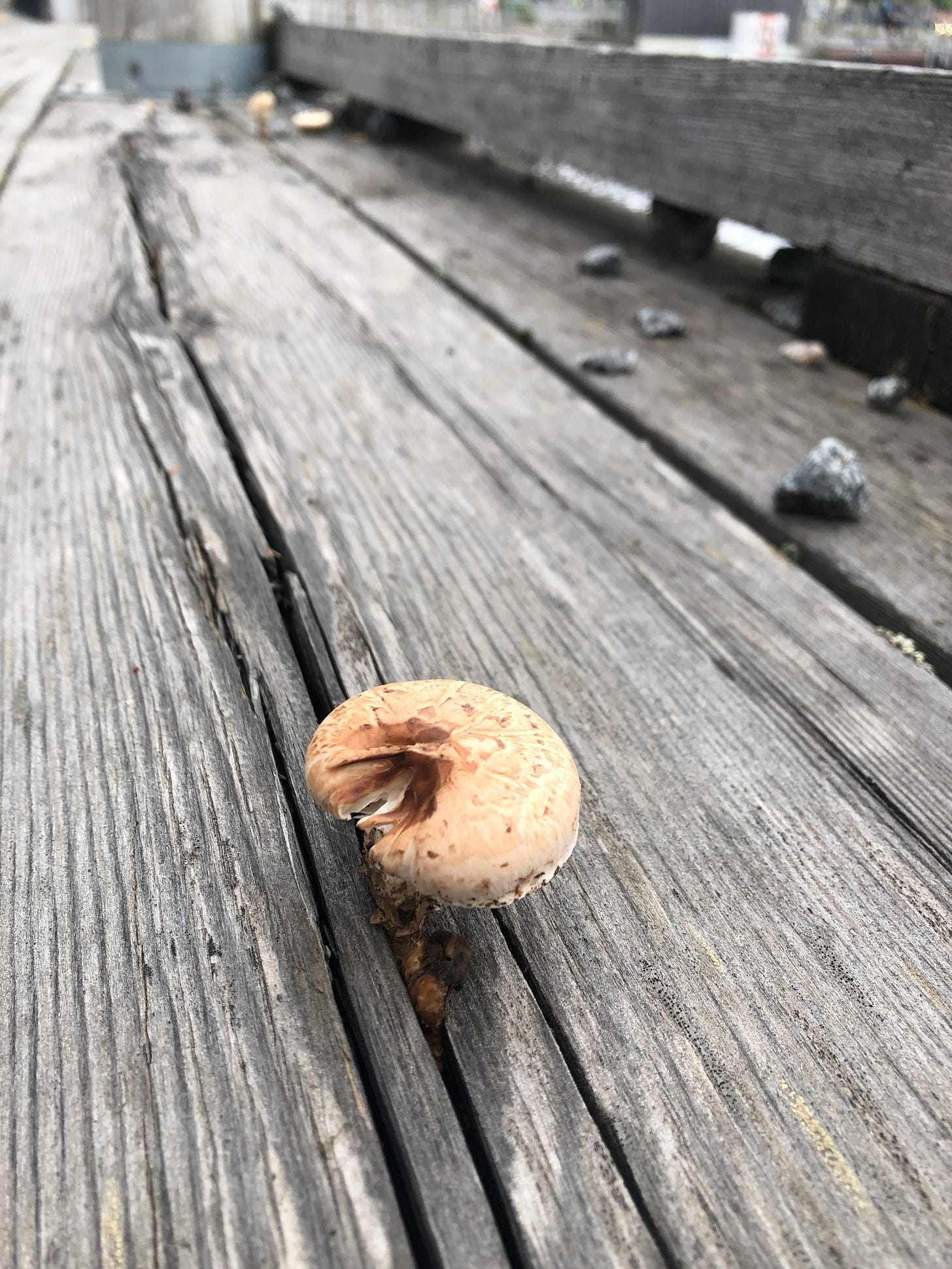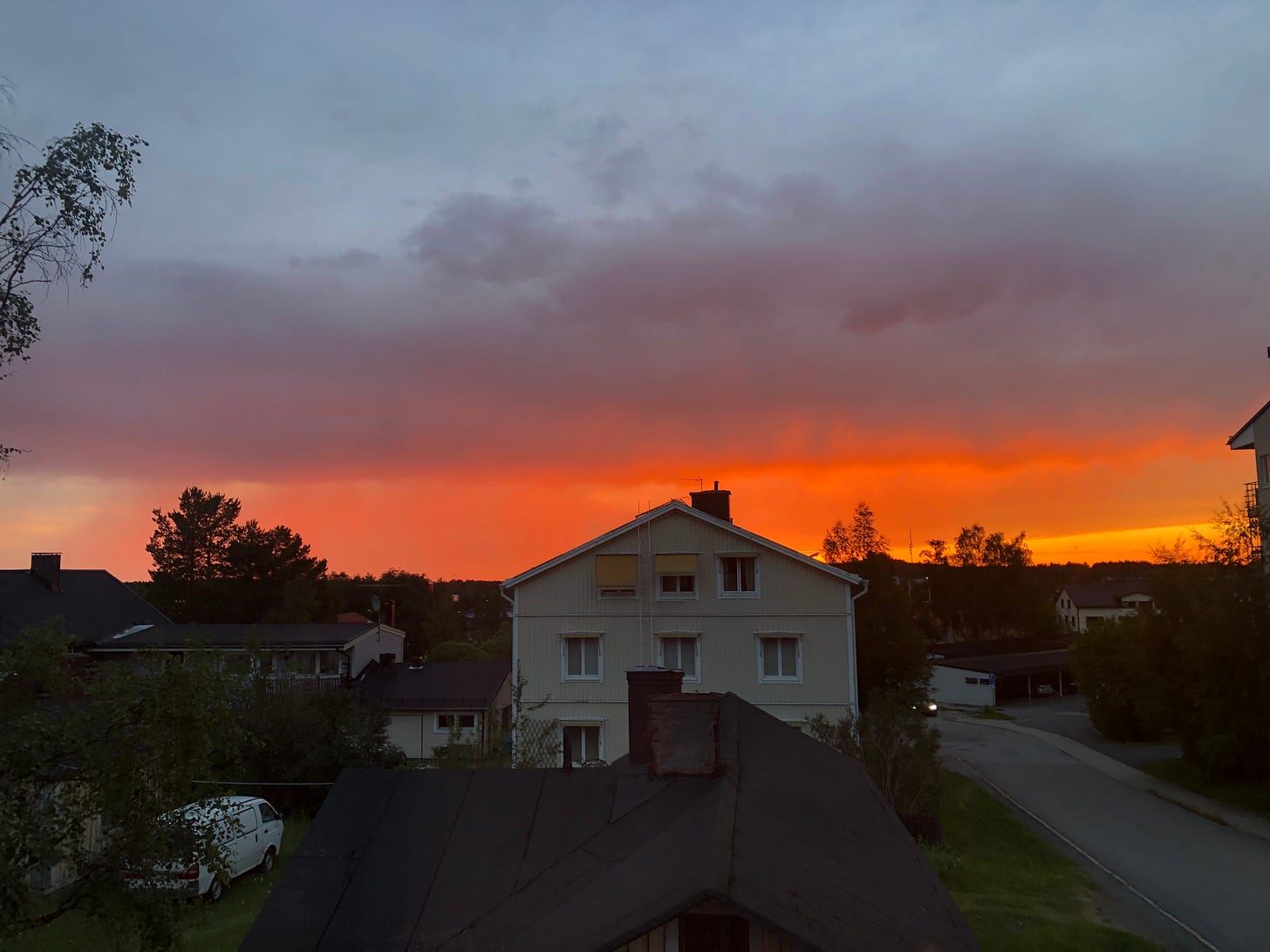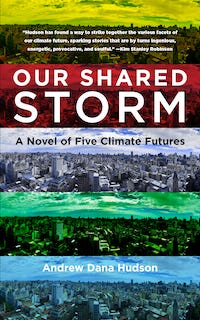New Short Story: “The Uncool Hunters”
Two rival market researchers walk into a future Costco and decide that big box isn’t big enough for the both of them. That’s the premise of my story “The Uncool Hunters,” newly published by the Escape Pod science fiction podcast (read or listen to it here or wherever you get your podcasts). Here’s the opening graf:
Before she settled down into publishing in Minneapolis, before she got taken for a ride by the Chicago AltNormLit scene, before she flared spectacularly out of Silicon Alley, and had her pilot shoot C&Ded by the City of Santa Barbara, and narrowly avoided cryptocollar prison in the floodzone formerly known as Tampa, Rocky Cornelius was a fucking uncool hunter.
I’m proud to say this story got a rave review from author Maria Haskins in her monthly SFFH short fiction roundup. “Oh my gosh. Read. this. story,” Maria advises, calling it “Brilliant, and hilarious, science fiction.”
I wrote this story during Clarion last summer, in a feverish, fatigued sprint to jam out one more piece of fiction during our final week. I had a lot of false starts on more self-serious pieces before giving up and writing this one, which is pure knock-down-drag-out silliness. I wrote about half of it in a fugue, desperate to get something uploaded so I could go eat the incredible tacos that had been catered for one of our last dinners together. And yet, in the end, this was the story I was most excited to get out on submission after the workshop was over.
It’s a story idea that’s been germinating in me for years. I was walking around the Tempe Costco, and found myself fascinated by what it said about our culture that this or that product was popular enough to be sold in huge Costco-sized containers. And I had the idea of flipping the script on the classic late 1990s/early 2000s concept of professional “cool hunters,” those with-it operatives who figured out what the teens and the hipsters were into and sold it up the corporate food chain. In a world of increased inequality and elite disengagement with working class life, however, perhaps the harder task becomes figuring out what’s going on with all those not-so-hip millions living in flyover states. As the story puts it:
The bobo brahmins of the retreating coastlands had no clue what the median decisionmaker of a basic income household ate, read, or dressed her three-point-two kids in. No one who worked at a Brooklyn- or Berkley-based strategy refinement firm could be arsed to take a fact-finding trip to Indianapolis, IN, Chandler, AZ, or goddamn Dubuque, IA. But those places moved units.
That was the seed. The rest of the story is about a food fight.
I’ve started to think of some of my work as falling into a bucket I call (in my head mostly) socialist surrealism. My recent story “Any Percent” fits into this category, as do “May Day” and “Your Mind is the Superfund Site.” It’s fantastical fiction in the mode of China Miéville’s Iron Council, where reality is warped by class war and SFF tropes are reimagined in a Marxist context.
Stories like “The Uncool Hunters” (as well as the section “Too Fast to Fail” from my book Our Shared Storm and people’s favorite “Voice of Their Generation”) fall into this bucket too, just in a mode I think of as “High Capitalism.” I suppose you could quibble and call this “capitalist surrealism,” but for me it’s as socialist as reading the Financial Times. Socialists have always put more effort into actually understanding capitalism than most of the status quo’s defenders.
I think of High Capitalism as distinct from the “late-stage capitalism” we often complain about nowadays. The latter is defined by its crises and contradictions, by decay and dysfunction that must surely result in either rupture (revolution) or dystopia. The former, however, has a way of just kinda dancing around all that. Sure there might be problems (ecosystem collapse, heavy weather, refugee crises), but aren’t those problems really, if you’ve got the right mindset, opportunities? There’s no such thing as tragedy or triumph, just perturbations of the market. High Capitalism is a vision of a future in which neoliberalism has absorbed and coopted all possible critique and left us with no recourse but to shrug (or grin) and play the game.
My High Capitalist stories are soaked through with brands, products, and marketing language. That’s just how people talk, how they think, what they see when they look out on the world. These details take the place of “eyeball kicks” that were characteristic of cyberpunk. Snow Crash was halfway there; Jennifer Government was closer; The Destructives had some excellent riffs. Such stories, to me, ask the question: if capitalism is the only possible economic system in modernity and into the future (see Fisher,Mark), what is that going to do to us?
I figured out that this was what I was going for during critique of “The Uncool Hunters” at Clarion, when the always insightful
asked me a variation on the question above. My answer (as best I can recall) was that everything becomes triangulation, moral stands become impossible, ideology and ethics dissolve into competition over market position. The bourgeois novel has long been (mostly) about the tensions between being a “good person” and the drive for acquisition. Under High Capitalism that’s all out the window. The debate has been settled.I guess Rocky Cornelius has become my avatar of all this (though Noah and Luis from the SSP5 story in my book got there first). I’ve written another story starring her since finishing “The Uncool Hunters.” She’s turning a bit into my own Leggy Starlitz, a kind of trickster-hustler character from a handful of Bruce Sterling short stories and his novel Zeitgeist, which take place in a world in which post-modernism is literally true. I’ve got it in my mind to one day do a kind of Scheherazade-esque fix-up novel about Rocky’s exploits.
Rocky is brilliant, she’s energetic and effective, she has a deep understanding of society, of people and systems and narratives. She’s also completely amoral. Not like she’s bad or evil; those aren’t really operative terms in Rocky’s world anymore. Yes, she’s got a sort of professional code, as evidenced by her indignation at her rival’s problematic research practices. But really that’s just an excuse to further her own position, and when indignation is no longer advantageous she drops it in a heartbeat and moves on to a new narrative.
So Rocky is a ton of fun to watch, but rooting for her is kind of like rooting for your favorite schemer on Succession. Only in Succession, the joke is that no one in power actually knows what they are doing, and here the joke is that Rocky (who dresses in ninja tactical to spy on Costco shoppers choosing snack flavors) really, really does. Which, I hope, is a point that comes across in “The Uncool Hunters.” Certainly it’ll come across in future Rocky Cornelius Consultancy stories, once those find a home.
High Capitalist stories, to me, make a fun, cynical minor key to the plucky, sappy, idealistic major key played by a lot of solarpunk. The contrast is in whether: a) we turn our head to look at the world-disaster straight on, to bear witness, and decide that, no matter how painful it is, we will make it make us better, more resilient, more caring and thoughtful, more kind and open hearted, and we will take on the mission to fix what’s been broken and heal what’s been hurt. Or b) nah, I’m good, I don’t see anyone else jumping out of comfort to save the planet, and if they did it’d be a little weird, so I’m going to keep my eyes on the freeway straight ahead, focus on demonstrating my worth in the main way my civilization has given me to do so——shareholder value——that way if the monster ever comes for me I can simply do the sensible thing: pay it to go away.
I really do think we all have this choice, and it’s a harder one than you’d think. Team B is very seductive. The point of stories like “The Uncool Hunters” is to let Team B flex a bit, show off, make a case for their ideal world. What does the High Capitalist Utopia actually look like? Grotesque as it is, it’s a question worth asking. That way we can make an informed choice about what kind of people we’re going to be, what kind of world we’re going to demand and build. That way, when we tell Team B to fuck off, we can know why, and mean it.
All that may seem grandiose, given that we are talking about three thousand words about two assholes throwing tuna cans at each other. Really, I promise the story is fun and funny! But I recently got to see this incredible Laurie Anderson exhibition at the Moderna Museet in Stockholm, and my big takeaway was that sometimes art is just an excuse to talk about stuff that you find interesting and important. So here I am.
Anyway, give “The Uncool Hunters” a read, share it with your friends/networks, and let me know what you think. Here’s the link one more time.
Art Tour: Scritch Scratch Meow
My main art recommendation this month really is Laurie Anderson’s body of work, which I’ve gained a new appreciation of. (Though there were a few 2021-era AI generated texts that feel, now, incredibly dated and naive.) But after last month’s “garffiti,” I felt I had to share this great pair of murals we saw in Uppsala.
June Conferences Recap
Attended a very interesting workshop on carbon dioxide removal, which brought together knowledgable lefty-ish folks try to chart what a progress vision for the burgeoning sector might look like. (You can read some of my previous thoughts on what I call “climate repair” here, here, or here.) My takeaway from is that there are a lot of tricky discussions here that we are only beginning to figure out how to have. I think of CDR as mostly about permanently rolling back the mess we’ve made of the atmosphere, but for a lot of folks industrial carbon removal is a necessary evil that should be deployed only to match truly hard to abate emissions. I had gone in assuming direct air capture fit nicely into a renewables-powered energy system, but apparently the idea of DAC plants that only work when energy is cheap is very niche; you just can’t pay off your capex loans (under current financing norms) running only a handful of hours a day. And it’s tough to think multi-generationally about something that is starting to happen right now, with ground being broken on problematic, fossil-funded DAC plants in west Texas. All in all, I learned a lot and met some great people, and I’m hoping to be involved in this process as it keeps moving forward.
I also attended Eurocon, my first SFF convention in…a long time. I had the pleasure of participating in a bunch of panels on some great topics: climate fiction, hopepunk (I moderated), AI and identity, and working with the future. Sadly on Saturday came down sick and lost my voice, and had to bow out of the last panel on my dance card. In the day and a half that I was around, however, I had the great pleasure of meeting friend and fellow solarpunk booster Francesco Verso in person at last. I also got to meet Ian McDonald, whose River of Gods I enjoyed and who’s recent Hopeland I am eager to dig into, and the lovely Martha Wells of Murderbot fame. Plus a bunch of other wonderful fellow travelers. If you have a con stateside you’d recommend I attend, please hit me up!
And Anna and I had the last of our narrative hackathons, back in Skellefteå, which was good fun. I’m half done with the four scenario stories I’m slated to do, with a busy month of writing ahead. I’ve learned a lot through this process; it’s turned out a bit more like the Weight of Light/Cities of Light projects I did with ASU and a bit less like my own solo work of comparative scenarios fiction Our Shared Storm. I had hoped to find a perfect balance between these approaches: the group-generated insights combined with the auteur’s capacity to craft scenarios that are in conversation with each other. The former came together nicely, but the later has proved difficult, because in the end this is a process that begins with a collect effort of imagination. And the scenario dimensions we chose were good for inspiring group design imagination but not so good for highlighting normative dilemmas. And the regional nature of these stories prevents them from sprawling too far conceptually. Still, I think the final project will be a nice little package.
Material Reality: Summer Walks
True Swedish summer has arrived here in Luleå, and the locals go so hard with the vacation mindset that it’s hard not to get into the spirit. We’ve been taking long walks around town: to the beach in the peninsula park, to the wooden weight lifting contraptions by the lake, or unsuccessfully trying to find our way on foot to the ski-park to hike.
It’s all really beautiful, with tons of wildflowers blooming, and duck ponds we’ve gotten to know, and lovely bright light all day long. And sure, there are mosquitos, and Norwegian tourists on scooters, and sleep is still complicated by the sun and by mockingbirds that have learned to mimic annoying local building beeps. But really, I do see the appeal, especially if I was as determined as the Swedes to take three or four weeks off to do nothing but bask in it all.
Walking around a place over and over can get boring, but it’s a lot less so if you learn to look around, and down. As in our AZ neighborhood, there’s lots of funny little details to notice. It’s felt a bit like our own little amateur version of my friend Christopher Brown’s Field Notes. I mean, the other day we found honest to goodness wild strawberries under an overpass.
Or there was the mushroom growing out of the wooden wharf.
Or the way yellow pollen swirled in the puddles after our midsommar rain.
Or the sign graffiti asking “man or mouse?”
Anyway, here’s an 11:30pm sunset for the road.
If you like the this newsletter, consider subscribing or checking out my recent climate fiction novel Our Shared Storm, which Publisher’s Weekly called “deeply affecting” and “a thoughtful, rigorous exploration of climate action.”










